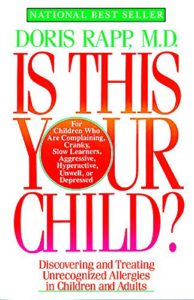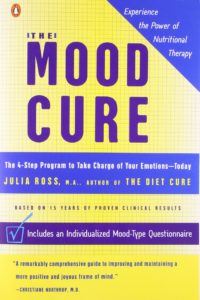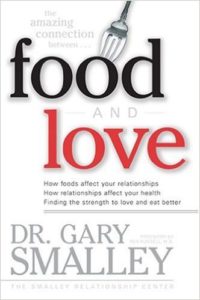Is the Key to Calm in Your Grocery Bags?
One of the most important action items to make home a haven is to evaluate what’s coming through the door in our grocery bags.
The food I bring into my kitchen can either provide energy and health, building little healthy bodies and healthy immune systems, or it can work against our biology, resulting in allergies, irritability, hyperactive behavior, fatigue and general moodiness.
I want to talk about a big end-goal for my home and family when I make my grocery lists.
My goal is to have more calm in our home.
If you ever watch a child who is overtired or has just had a very sugary treat, you will see some pretty drastic changes in his/her behavior… all kinds of acting up. This is a great window into how much physiological factors can influence behavior.
So many books have been written about how to manage our children’s and even our own behaviors…. But evaluating physiology is just as important as psychology when it comes to behavior management. Let me explain: in the heat of the moment, I may not realize that my child’s behavior is the result of a physiological response to something I fed her. No amount of the latest child rearing techniques will fix a brain that has been momentarily broken by a food sensitivity. In fact, there have been times when I’ve been in the thick of setting boundaries and implementing time outs with my daughter when I’ve finally realized I let her have too many “treats” – too much sugar – for her to stay within boundaries.
Dr. D oris Rapp, author of the groundbreaking book “Is this Your Child?” observed that some environmental and food allergies in children caused their behavior to be altered drastically, causing everything from ADHD to tantrums; even violent behaviors for some. But in certain cases, when the allergens were identified and removed, the children were able to behave normally, to focus, and to maintain calm. The brain is just as much a part of our biology as any other organ, and can be greatly impacted by our environment and our foods.
oris Rapp, author of the groundbreaking book “Is this Your Child?” observed that some environmental and food allergies in children caused their behavior to be altered drastically, causing everything from ADHD to tantrums; even violent behaviors for some. But in certain cases, when the allergens were identified and removed, the children were able to behave normally, to focus, and to maintain calm. The brain is just as much a part of our biology as any other organ, and can be greatly impacted by our environment and our foods.
Beyond food sensitivities, nutritional deficiencies can also impact mood. The American diet includes refined starches, caffeine, sugar and sodas, which are nutrient poor. Even though we live in the land of plenty, a diet that is too heavy in processed, refined foods (aka, food out of a package or a can) can be lacking some essential nutrients to nourish the brain. The brain requires B vitamins and healthy fats to function properly (the fats found in nuts and seeds, avocados, coconut and olive oil), nutrients that are devoid in most processed foods.
A nutrient-low diet can lead to low serotonin levels. We have a self-esteem crisis in the youth of our nation. I can’t help but wonder if some of this is linked to the foods our youth is eating. Psychologist Julia Ross in her book “The Mood Cure” noted:
 “Like most psychotherapists, I have spent many long hours struggling to help people with shyness and low self-esteem…. The trouble was that psychotherapy didn’t always help. Self-critical thoughts and feelings often continued to dog my clients, no matter how hard we worked. I couldn’t understand it.
“Like most psychotherapists, I have spent many long hours struggling to help people with shyness and low self-esteem…. The trouble was that psychotherapy didn’t always help. Self-critical thoughts and feelings often continued to dog my clients, no matter how hard we worked. I couldn’t understand it.
“But when those same clients changed their diets and began using pro-serotonin supplements, something amazing happened – as their serotonin levels rose, so did their self-confidence.”
The evidence is clear: food can affect the brain and behavior. Where does this leave us as parents?
It’s important to monitor kids for any patterns that may indicate a food sensitivity. If you notice every time your child eats or drinks a certain food, she starts acting out or gets a tummy ache, that’s a signal to try eliminating that food to see if it makes a difference. We noticed that too much dairy bothers Ellianna’s tummy, so we switched her to almond milk. Too much sugar and food dyes make her start bouncing off the walls (no surprise here). Many parents have found that by avoiding food dyes (as much as possible!) and other foods their children are sensitive to can turn around some behavioral issues.
It’s hard to say “no” sometimes. Kids don’t always understand why everyone else can eat something but they can’t. But the hard truth is that it’s even more unfair for me to allow my child to eat something that impacts her brain and I spend the rest of the day riding her case because she can’t behave.
Beyond eliminating food allergens, including lots of fruits and veggies, nuts, seeds and whole grains is also key. I’ll be the first to say this is tough. Everywhere my daughter goes (school, soccer games, events), sugary and starchy snacks are freely available. On holidays and birthdays, we love to celebrate with special treats. My daughter doesn’t have specific grain allergies, so I go with the 80/20 rule: as long as she is getting nutritious foods the majority of the time – at least 80% of the time- that’s a win. The key here is to pack lunches and eat healthy food at home. – it goes back to looking at what’s in the grocery bags I’m bringing in the door.
A calm household starts with mom and dad as well. The old adage is true: “If mama ain’t happy, ain’t nobody happy.” I’ve found some things that can trigger undesirable behavior in myself: Too much caffeine in the morning leaves me overanxious during the day and cranky and irritable at night. Too much sugar makes me suddenly more frustrated with smaller things. Not enough sleep or rest leads to anxiety and melancholy. Eating dairy causes chronic stomachaches which leave me short-fused and irritable. Certainly I have filters on my behavior, but filters wear down eventually. One of the best remedies to help me be patient and kind is to take care of myself so my emotional well is filled for my family.
To take good care of my family, I must take good care of myself.
Nourishing myself with whole foods can help my marriage too. Gary Smalley wrote a book called “Food and Love” that explores the link between food, mood and marital relationships. He hypothesized that poor health habits can cause irritability and other poor moods, which can then lead to marital dysfunction (and alternately, marital dysfunction can lead to unhealthy eating habits, so it is a continual cycle). Failing to nourish our bodies and thus our brain can lead to a short fuse and irritability, which in turn can starve a marriage of essential affection.
wrote a book called “Food and Love” that explores the link between food, mood and marital relationships. He hypothesized that poor health habits can cause irritability and other poor moods, which can then lead to marital dysfunction (and alternately, marital dysfunction can lead to unhealthy eating habits, so it is a continual cycle). Failing to nourish our bodies and thus our brain can lead to a short fuse and irritability, which in turn can starve a marriage of essential affection.
Certainly not all behavioral issues stem from food sensitivies and nutrient deficiency. The subject of behavior is complex, and many sociological, psychological, other physiological, and spiritual elements contribute as well.
I’ve simply seen first-hand the impact of nutrition on mood and behavior and on the emotional tone of our home. It’s such a simple thing to adjust, it should not be missed.
Tomorrow I’ll share another important reason to stock the kitchen with healthy foods, as well as some grocery shopping tips.






